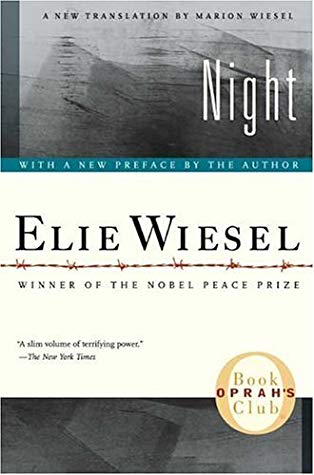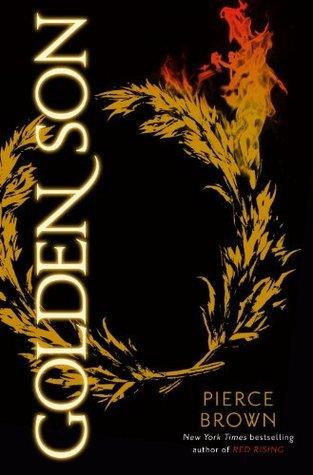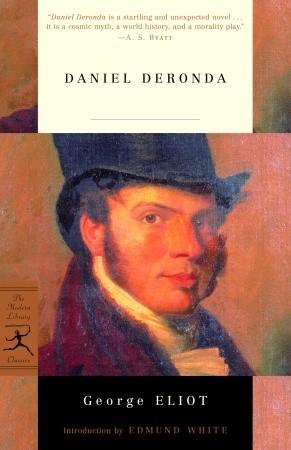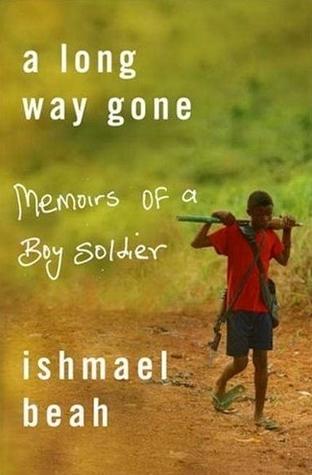Night by Elie Wiesel Book Summary
Discover a comprehensive summary and insightful review of "Night" by Elie Wiesel. Explore key themes, powerful lessons, and the profound impact of this Holocaust memoir. Uncover the emotional journey that defines this essential read.
Night Book Summary
Elie Wiesel's "Night" stands as one of the most powerful and haunting memoirs of the Holocaust, chronicling the author's devastating journey through Nazi concentration camps as a teenager. This deeply personal account offers unflinching insights into human suffering, the loss of faith, and the struggle to maintain humanity in the face of unimaginable evil. Through sparse yet profound prose, Wiesel transforms his traumatic experiences into a universal testament about survival, memory, and the importance of bearing witness to history's darkest chapters. His narrative serves as both a memorial to Holocaust victims and a moral imperative for future generations.
Discover the essential takeaways and detailed analysis in the We Were Liars Book Summary, Review & Key Insights to deepen your understanding and enhance your reading experience.
Night by Elie Wiesel - Introduction
I had no idea how deeply a short memoir could shake me until I read Night by Elie Wiesel. What surprised me most was how Wiesel’s voice, so raw and personal, made the horrors of the Holocaust feel immediate and painfully human—not just history you read about in textbooks. I picked up this book initially because I wanted to understand more about World War II from a personal perspective, and honestly, I wasn’t prepared for how much it would make me rethink faith, resilience, and the human spirit.
Night is a nonfiction, memoir, and historical book that clocks in at just 115 pages, so you can get through it in an afternoon or two. But don’t let the length fool you—this is powerful stuff. It’s a blend of biography, Holocaust, and war genres that brings history to life in a way few books do.
If you’re someone who likes classics but also wants to dive into the emotional core of history, this book is for you. It’s especially eye-opening for students or anyone curious about the personal stories behind the facts we often learn in school. Reading it felt like having a conversation with someone who lived through unimaginable times, and it made me realize how important it is to remember these stories.
Honestly, if you want a book that challenges your perspective and sticks with you long after you close it, Night is a must-read. Trust me, you won’t forget it.
What is Night About?

"Night" by Elie Wiesel is a harrowing memoir that chronicles his experiences as a Jewish teenager during the Holocaust, detailing the brutal realities of life in concentration camps. The book's main message emphasizes the importance of remembering the atrocities of the past to prevent such horrors from recurring, highlighting the resilience of the human spirit amid unimaginable suffering. Key concepts include the loss of faith in humanity and God, the dehumanization faced by victims, and the struggle for survival in the face of overwhelming despair.
About Book Author - Elie Wiesel
Our Speaker Tonight
It's a genuine honor to introduce someone whose life and words have touched so many. Elie Wiesel didn't start out with the intention of becoming a chronicler of such profound sorrow. His journey to writing Night was forged in the unimaginable fires of the Holocaust, a direct response to the silence he encountered and the urgent need to bear witness for those who could no longer speak.
- What's interesting about Elie Wiesel, and something I've come to understand about his path, is that after his liberation, he observed a self-imposed ten-year vow of silence about his experiences. This period of intense reflection undoubtedly shaped the power and precision of his eventual testimony.
- His understanding of human resilience, of memory, and the fight against indifference isn't theoretical; it's woven into the fabric of his being. This lived experience lends an undeniable moral authority to his voice, an authority that also echoes through his other vital works, such as Dawn and Day, which further explore these critical themes.
He is uniquely qualified to illuminate this subject not because he studied it, but because he survived it, transforming personal tragedy into a universal call for remembrance and humanity.
More Books To Find
Night - Book Overview
It's about Elie Wiesel's harrowing experience as a Jewish teenager during the Holocaust. He recounts his time in concentration camps, focusing on the loss of faith, humanity, and the brutal reality of survival. It’s not just a historical account; it’s a deeply personal story of suffering and resilience.
Wiesel wrote it to bear witness to the atrocities he witnessed and to ensure that the memories of those who suffered wouldn’t fade away. It’s more than just a memoir; it’s a call to remember and reflect on the consequences of indifference and hatred.
What sets it apart from other Holocaust literature is Wiesel's raw, emotional honesty. Many books focus on the broader historical context or the heroism of resistance, but Wiesel dives into the psychological turmoil and moral dilemmas he faced. He captures the internal struggle of maintaining hope in a world stripped of humanity.
One story that really stuck with me is when Wiesel describes the moment he and his father are forced to run through the snow during a death march. He vividly portrays the desperation and the bond between them, as well as the haunting moment when he begins to question his faith in God. It’s a powerful reminder of how the Holocaust wasn't just about physical survival, but also about the struggle for meaning and dignity in the face of unimaginable horror.
Key Insights of Night
Night by Elie Wiesel provides profound insights into the human experience during the Holocaust.
1. Loss of Faith: Wiesel grapples with the crisis of faith throughout his ordeal. Witnessing unimaginable suffering leads him to question the existence of God, highlighting the struggle many faced in maintaining belief amidst horror.
2. Dehumanization: The narrative illustrates the systematic dehumanization of individuals in concentration camps. Wiesel's experiences showcase how the Nazis stripped away identity, reducing people to mere numbers, which serves as a powerful commentary on the fragility of humanity.
3. The Importance of Family: The bond between Wiesel and his father is central to the story. Their relationship emphasizes the strength of familial ties in the face of adversity, showcasing how love and support can provide a semblance of hope amidst despair.
4. The Power of Silence: Wiesel reflects on the silence of bystanders and the world at large during the Holocaust. This silence becomes a theme, illustrating the moral responsibility to speak out against injustice and the dangers of indifference.
5. Memory and Testimony: Wiesel's commitment to bearing witness serves as a crucial reminder of the importance of memory. By sharing his story, he emphasizes the need to remember the past to prevent future atrocities, urging readers to remain vigilant against hatred and intolerance.
These insights encapsulate the profound themes in Wiesel's work, urging reflection on the human condition and the moral imperatives of remembrance and empathy.
Who Should Read This Book
"Night" by Elie Wiesel is essential reading for anyone seeking a profound understanding of the Holocaust and its impact on humanity. It resonates with students, educators, and history enthusiasts who wish to grasp the depths of human suffering and resilience. This memoir is particularly valuable for those interested in themes of faith, morality, and the human capacity for both good and evil. Additionally, it serves as a crucial reminder for future generations about the importance of tolerance and the dangers of indifference, making it a must-read for anyone committed to social justice and human rights.
Read If You Are
- [a student studying Holocaust history or human rights]
- [someone interested in memoirs that explore the depths of human experience]
- [a reader seeking to understand the impact of trauma and resilience]
Skip If You Are
- Not interested in historical accounts or memoirs related to the Holocaust.
- Prefer light-hearted or fictional reading over serious and profound themes.
- Unwilling to confront difficult emotions or challenging moral questions.
Important Takeaways from this Book
-
Educate Yourself on History: Start reading books or watching documentaries about the Holocaust and other genocides. Understanding these events is crucial to prevent history from repeating itself. This knowledge empowers you to recognize signs of intolerance and injustice in today’s society. Consider finding a local library or online resources to begin your research.
-
Engage in Community Service: Volunteer at a local organization that supports marginalized groups. This action fosters empathy and connection, helping you understand the struggles of others. Look for opportunities in food banks, shelters, or advocacy groups. Engaging with diverse communities enriches your perspective and builds solidarity.
-
Practice Active Listening: Make a conscious effort to listen to someone’s story, especially from different backgrounds. This can be a friend, family member, or colleague. Active listening cultivates understanding and compassion, breaking down barriers of prejudice. Set aside distractions and dedicate time to truly hear their experiences.
-
Speak Out Against Injustice: When you witness discrimination or hate speech, don’t remain silent. Use your voice to challenge harmful narratives. This could be as simple as addressing a comment in a conversation or sharing resources on social media. Your courage to speak can inspire others and contribute to a more just environment.
-
Reflect on Your Values: Take 10 minutes each day to journal about your beliefs and how they align with your actions. This practice encourages self-awareness and personal growth, helping you to live more authentically. Find a quiet space where you can think deeply and write without interruptions.
Book Review
I picked up "Night" by Elie Wiesel expecting a straightforward memoir about the Holocaust, but what I got was a deeply personal and haunting exploration of faith, humanity, and despair. Wiesel's writing is stark and poignant; his use of simple yet powerful language made the horrific experiences feel immediate and raw. For instance, when he describes the moment he witnesses the execution of a child, I felt a visceral reaction that stayed with me long after I closed the book.
One of the strengths of "Night" is its pacing. Wiesel doesn't dwell too long on any one event, which keeps the narrative moving and maintains the reader's engagement. The short chapters mirror the fragmented nature of his experiences, making it feel more like a collection of memories than a traditional narrative. This style effectively conveys the chaos and trauma of his journey.
However, I found that at times, the brevity left me wanting more context or emotional depth in certain areas. For instance, while Wiesel's reflections on faith are profound, I wished he had delved deeper into his internal struggle with belief.
In comparison to other Holocaust literature like "The Book Thief" or "Man's Search for Meaning," "Night" feels more raw and immediate, lacking the embellishments of fiction but packing an emotional punch that is hard to forget.
Overall, I think "Night" is a must-read for anyone looking to understand the depths of human suffering and resilience. However, if you're seeking a more narrative-driven or fictionalized account, this might not be the book for you. It's a powerful testament that deserves to be read, but prepare yourself for its emotional weight.
Final Thoughts
If I'm being honest, finishing Night was a deeply unsettling experience, but it’s one that I believe is essential. The overall takeaway for me is the sheer resilience of the human spirit amidst unimaginable suffering. I'd definitely recommend this if you're someone who wants to understand the depths of human cruelty and the importance of memory in preventing history from repeating itself. However, I’d say skip this one if you’re looking for something light or uplifting; it’s heavy and raw.
The thing that surprised me most was the stark honesty in Wiesel's writing. His ability to convey such profound emotion in simple language really struck a chord with me. Months from now, I think the image of hope flickering even in the darkest times will stick with me.
As for whether I’d read it again, I’m not sure I could handle the emotional weight a second time, but I would recommend the full book over a summary. There’s something about experiencing Wiesel’s journey in his own words that’s irreplaceable. Overall, it was a powerful reading experience that left me reflecting on humanity's capacity for both good and evil.
Frequently Asked Questions
How long does it take to read Night?
It typically takes about 4 to 6 hours to read "Night" by Elie Wiesel, depending on your reading speed. With 115 pages, you might find yourself deeply engaged, reflecting on its powerful themes and messages as you read.
What makes "Night" different from other books in this genre?
"Night" stands out due to its raw, personal narrative of Wiesel's Holocaust experience, blending memoir with profound philosophical insights. Its stark simplicity and emotional depth convey the horrors of humanity, offering a unique perspective that transcends typical historical accounts, making it a powerful testament to survival and faith.
Who is the target audience for Night
The target audience for "Night" includes readers interested in Holocaust literature, those seeking personal narratives of survival, and individuals exploring themes of faith, humanity, and resilience. It resonates with students, educators, and anyone looking to understand the impact of trauma and the importance of remembrance.
Are there any criticisms or limitations of Night
Critics argue that "Night" may oversimplify complex historical events and emotions, potentially reducing the Holocaust experience to personal trauma. Some also feel it lacks broader context regarding the systemic nature of genocide. Additionally, the book's brevity may limit its depth in exploring the myriad of survivor experiences.
What is the main theme of Night by Elie Wiesel
The main theme of "Night" by Elie Wiesel is the struggle for survival amidst the horrors of the Holocaust, exploring the loss of faith, the impact of inhumanity, and the enduring strength of the human spirit in the face of unimaginable suffering.
Tags:
Elie Wiesel, Night, Night Author, Night Book, Night Book Description, Night Book Rating, Night Book Review, Night by Elie Wiesel, Night ISBN, Night Short Summary

Michel Fisher
Michel Fisher is a passionate fiction enthusiast and book blogger who writes about emotional reads, character-driven stories, and contemporary romance authors that captivate hearts and minds.

Night
Book Overview
Description
Born in the town of Sighet, Transylvania, Elie Wiesel was a teenager when he and his family were taken from their home in 1944 to Auschwitz concentration camp, and then to Buchenwald. Night is the terrifying record of Elie Wiesel's memories of the death of his family, the death of his own innocence, and his despair as a deeply observant Jew confronting the absolute evil of man. This new translation by his wife and most frequent translator, Marion Wiesel, corrects important details and presents the most accurate rendering in English of Elie Wiesel's testimony to what happened in the camps and of his unforgettable message that this horror must simply never be allowed to happen again.
Key Points
Survival amidst horror
Characters
Publisher
Hill & Wang
First Publish Date
10/28/56





